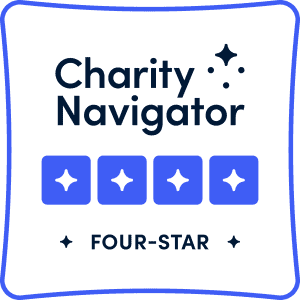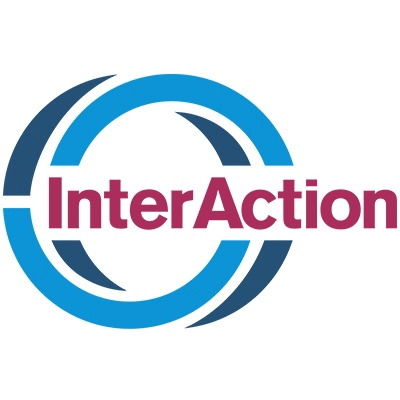Youth
Youth play an imperative role as agents of change creating a world without hunger
Today, there are 1.2 billion young people aged 15 to 24, accounting for 16% of the world’s population. In sub-Saharan Africa, where hunger and poverty are most prevalent, 70% of the population are under the age of 30. In India, nearly 1 in 4 people are between the ages of 15 and 29, and in Bangladesh nearly 30% of its population falls within this age range. These demographic trends underscore the importance of mobilizing and elevating young people as next generation leaders.
At The Hunger Project, we are committed to amplifying, strengthening and expanding youth leadership across the globe. Our new Strategic Framework calls for a quantum leap forward in amplifying the power of next generation leaders.
Elevating young leaders is not only critical to the sustainability of solutions, but opens the door to innovations we wouldn’t otherwise see. We focus on pioneering initiatives by, for, and with youth—especially girls—to catalyze change in critical areas such as social justice and equity, technology adoption, civic engagement, climate resilience and government accountability.
What we do.
Strengthen Leadership Skills.
We elevate young people to grow as leaders by strengthening their skills, both for their success and for society to thrive.
- Through Youth Ending Hunger in Bangladesh, a movement led by young leaders, we foster social and civic responsibility by supporting young people to improve their communities. Youth Ending Hunger is one of the largest volunteer networks in Bangladesh. Over 33,000 members participate in campaigns and social action projects that cover topics like nutrition, education, environment and income generation. These young leaders are driving change throughout the country and are a powerful movement for progress.
- In Malawi, through our Youth Empowerment for Agricultural and Economic Growth project, we support young people to develop the skills they need to build thriving agriculture-based businesses.
- In India, we work with adolescent girls to build their confidence to exercise their voice and agency in making informed decisions about their lives. The main objective is to delay child marriage, ensuring they stay in school and step out as healthy, confident young adults.
- In Uganda, the Safe Choices for Deaf Girls provided tailored support to girls with hearing impairments to make safe choices related to sexual and reproductive health.
Amplify Voices.
We elevate and amplify youth voices as critical to creating a world without hunger, recognizing their unique perspectives and innovative ideas as invaluable assets in driving sustainable solutions for a brighter future.
- Violah Nayebare, Advocacy and Communications Officer, represented The Hunger Project as a Discussant on a panel featuring former Security General of the United Nations, Ban Ki Moon and other global leaders during the Global Town Hall hosted by FPCI and Global Citizen. This global convening provides high-caliber discussions and debates on the state of the world involving leading minds worldwide. It aims to expose global citizens to various perspectives and ideas on addressing global challenges.
- As part of our participation at the NGO/CSW Forum, which takes place each year alongside the UN Commission on the Status of Women, and the Skoll World Forum, we hosted a panel of four young, female climate activists from Bangladesh, Pakistan, Mexico and South Africa to highlight the impact of young activists and inspire more youth to join the cause. These women are proof that young leaders are paving the way toward progress. They are not constrained by the protocols and processes governing international spaces and are leveraging their creativity to generate solutions, action and hope. Both events are available to watch here.
- During the World Food Forum in 2022, hosted by the Food and Agriculture Organization, our CEO & President Tim Prewitt presented a case study about how The Hunger Project mobilizes youth around the world to end hunger in their communities. Speaking about Youth Ending Hunger Bangladesh and our youth-focused livelihood programs in Malawi, Tim highlighted the importance of youth leadership, commitment and action in creating access to safe and nutritious food for all.
- During the World Bank Group Youth Summit in 2023, Sera Bulbel, Senior Associate, Research, Communications and Learning, MCLD, spoke about how young leaders can drive change locally. “Community-led development is the most powerful and most sustainable way to achieve the Sustainable Development Goals,” she said in the Summit’s opening youth panel. Read more about the event here.
Partner with Key Stakeholders.
We support youth-led programs that develop the next generation of leaders by partnering with local governments, nonprofits and youth networks.
- In the southern regions of Mexico, we are working with girls from Indigenous communities to build their capacity and agency to make decisions about their lives, particularly about when they marry. The girls have created “purple circles” or safe spaces where they grow and and transform themselves.
- Our US-based youth program, FeelGood, is a movement of passionate, committed university students turning their college experience into a time of global action. They develop their business, leadership and teamwork skills while running a successful social enterprise—typically a grilled cheese deli— to raise money and build public support to create a world without hunger.
- The Youth Council is an internal Hunger Project initiative by youth staff, for youth staff that aims to elevate the voices of the next generation. Through mentorship, skill development and network opportunities, the Youth Council mobilizes young professionals to grow in their fields, fostering a supportive environment where we can collaborate, learn and connect with one another.
Enable Technology and Digital Access.
In low-income countries, nearly 90% of adolescent girls and young women lack internet access, while their male counterparts are twice as likely to be connected online. We aim to bridge the digital divide and create meaningful connectivity to ensure that education and information is accessible to all, especially disabled youth.
- In Mexico, we support young women to access the internet and learn digital skills through the Digital Basket project to grow their businesses to drive innovation and create a sustainable market ecosystem.
- In Benin, 2,500 young adults will have access to digital information platforms and sustainable agriculture advisory services to increase their agricultural yields and apply these practices/technologies by 2025. This initiative is in an effort to promote innovative and sustainable entrepreneurship among the younger generation.
Are you a young person interested in making a difference in the world?
Learn more about how to get involved today by becoming a Youth in Action!
Related News
Make change happen. Invest in people.
Mailing address
The Hunger Project
110 West 30th Street, 6th Floor
New York, NY 10001
Get connected
Join the conversation on social, and stay connected with the latest from our partners around the world.
Stay informed
Subscribe to our newsletter to receive updates of latest news and events.
© The Hunger Project | Website by The Good Alliance






